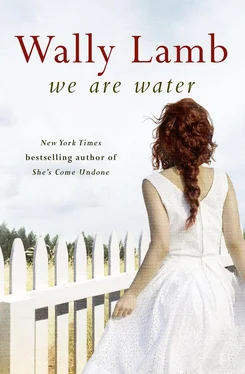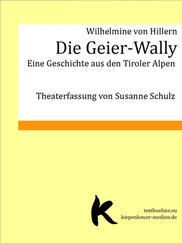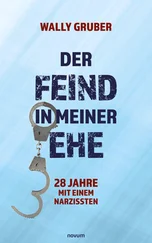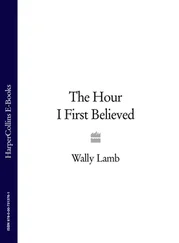“Your parents must have been very proud of you,” Miss Arnofsky says.
“My father was, yes. But Mama was against my going. She begged me to stay in New York—to find and marry a nice girl from the Old Country and give her grandchildren. Papa, on the other hand, urged me to go and learn whatever Chicago could teach me. I remember the tears in his eyes the morning he saw me off at Grand Central Station, especially after I unfolded the sheet of paper I’d slipped into my pocket when I’d packed the night before. ‘Look what I’m bringing, Papa,’ I said. He stood there, holding in his shaking hands one of the cartoon drawings he had made for me years before. Then he handed it back to me, blew his nose, and told me I’d better board the train before it left without me. And so, without daring to look back at him, I did.
“And oh, I loved the Windy City! Its crisp autumn weather, its warm and friendly people. I loved my classes, too, and was a sponge, absorbing whatever my instructors could teach me. On Sunday afternoons, it became my habit to write long letters to my parents about my exciting new life. But as autumn turned into winter, Mama’s letters back to me began to describe the strange obsession that had overtaken my father. Papa claimed that Catherine of Siena, Italy’s patron saint, had appeared to him in a vision, commanding him, for the edification of Italian Catholics the world over, to illustrate the story of her life: her service to the sick during the Black Death; her campaign to have the papacy returned from Avignon to Rome; her receiving of the stigmata. It was a terrible thing to witness, Mama wrote: a husband’s strange decline into madness.
“That Christmas, unable to afford the trip back to New York, I stayed in Chicago and sent my parents a gift box of candied fruit, sugared nuts, and nougats. Presents arrived for me as well. Mama had sent me three pairs of socks and a week’s supply of woolen underwear. Papa’s gift arrived in a long cardboard tube, and when I opened the end and uncurled the onionskin paper within, there was his charcoal rendering of the mystical marriage of Saint Catherine to Jesus Christ. The lines of the drawing were as frenzied and driven as the brushstrokes of the great Van Gogh, and the paper had several tears where he’d pressed down too hard with his pencil. I pinned Papa’s present to the wall above my bed, next to the fanciful drawing he had made for me when I was a little boy, and, looking from one to the other, lamented. If fate had been kinder to my father, I thought, he might have left New York, traveled west to California, and found work with the great Walt Disney instead of in a windowless back room at Macy’s gentlemen’s department. But as the people of the Old Country say, Il destino mischia le carte, ma siamo noi a giocare la partita. Destiny shuffles the cards, but we are the ones who must play the game.”
“That could just as well be a Yiddish proverb,” Miss Arnofsky says. “But destiny has certainly been kinder to you than it was to your father. A successful painter, the director of a museum.”
I nod. Smile at my guest. “Overseeing the Statler’s collection and hanging shows in its gallery hall is what paid our bills. But painting has always been my primary calling.”
“And there’s ample proof of that,” she says, scanning the room. She asks if I have children. One son, I tell her. Giuseppe. Joseph. “And has he followed in your footsteps?”
“As an artist? In a way, I suppose. He works in television out in Hollywood. Directs one of the daytime soap operas. And that calls for a kind of artistic style, too, of course. Television is so much about the visual.”
“Do you see him very often?”
“Not as often as I’d like. But I’ll see him next weekend. He has to be in New York on business, and so he’s coming up for the weekend. In fact, he’s bringing me to Annie Oh’s wedding.”
“Sounds nice. And you’re a widower?”
“Yes, my Anja died in 1989. Heart failure. One day she was here, the next she was gone.”
“And since then? Any other women in your life?”
“No, no. I suppose you could say that in old age, my work has become my wife. Or maybe this was always so.”
“Two long and happy marriages then,” Miss Arnofsky says.
I nod. “Long, happy, and somewhat mysterious.” My guest cocks her head, waiting for me to explain. “One’s wife, one’s art: you can never know either fully. After Anja died, I read her diaries and learned things about her I had never known. That she wrote verse—lovely little poems about her village back in Poland. And that once upon a time she had loved a boy in her village named Stanislaw.”
“And your paintings? They keep secrets, too?”
“In a way, yes. Sometimes I’ll work on a composition for weeks—months, even—without knowing what it is I’m searching for. Or for that matter, after I’ve finished it, what finally has been resolved. After all these years, I still can’t fully explain the process. The way, when you are deeply involved in a composition, everything else in the room fades away—everything but the thing before you that is calling itself into existence. It’s as if the work on your canvas has a will of its own. When that happens, it can be quite exciting. But disturbing, too, when, as the painter, you are not in control of your painting.”
“Forgive me; I mean no disrespect. But the way you describe it, it sounds almost like you experience a form of temporary madness yourself.”
“Madness? Perhaps. Who’s to say?”
Miss Arnofsky points to The Dancing Scissors and says she recalls Annie Oh telling her something similar—that she began creating her collages and assemblages without really knowing why or how she was doing it.
“That was true of Joe Jones, too,” I tell her. “As I said before, he told me he had begun painting because he had to. That something was compelling him. All I know is that at such heightened moments of creativity, I feel as if my work is coming not so much from me as through me. From what source, I can’t say. The muse, maybe? My father’s spirit? Or who knows? It could even be that the hand of God is guiding my hand.”
“So your talent may be God-given? Is that what you’re saying?”
“Well, I’m afraid that sounds rather grandiose.”
“Quite the contrary,” she says. “I’m struck by your humility in the face of all you’ve accomplished.” For the next several seconds, we stare at each other, neither of us speaking. Then she smiles, closes her notebook, unplugs her tape recorder. “Well, Mr. Agnello, I shouldn’t take up any more of your time, but I can’t tell you how grateful I am. This has been wonderful.”
“I’m just relieved to see that you still have both of your ears. I was afraid I might have talked them off.” She laughs, says she could have listened to me for hours more. “Oh, perish the thought,” I say. She rises from her chair, tape machine in hand, and I tell her I’ll see her out.
“No, no. I can let myself out. You should get back to your work.”
I nod. We thank each other, shake hands. From the doorway of the studio, I watch her disappear down the stairs.
But I do not return to my work as I’d intended.
The sun and the conversation of the past hour have made me sleepy. When I close my eyes, the images I evoked for my guest play on in my head: Rufus Jones, bereft at his brother’s funeral … Papa’s cartoon drawings coming to life before me at the piazza with the Fountain of Gaia gurgling nearby, water spilling from the mouth of the stone wolf into the aquamarine pool … Annie Oh’s strange collages that day when I first came upon them. Suddenly, I remember something else about that day—something I had forgotten all about until this moment. I had been wavering about whether to give the top prize to Annie or to an abstract expressionist whose work was also quite impressive. But as I stood there vacillating, a gray-haired Negro appeared by my side—a man who looked eerily like an older version of Josephus Jones. It wasn’t Joe, of course; by then, he had been dead for years. “This one,” the man said, nodding at Annie’s work. It was as if somehow he had read my mind and intuited my indecision. And that had clinched it. The “best in show” prize was hers …
Читать дальше












